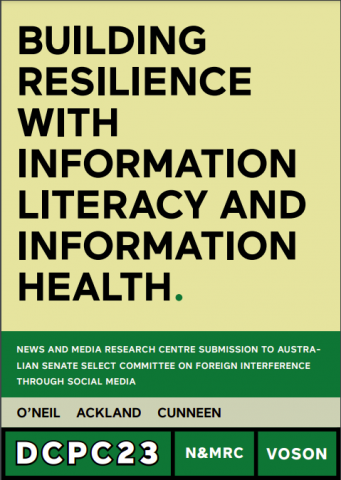New report: Building Resilience with Information Literacy and Information Health

How can people become more resilient to misinformation? What exactly does resilience mean when it comes to information literacy? Where can information resilience be collectively experienced, and developed? Researchers from the University of Canberra and the Australian National University (VOSON Lab) found that to counter foreign interference, debunk conspiracies, and safeguard Australian democracy, the information skills of Australians must be increased. The report outlines three key information resilience principles: non-partisanship, speed, and transparency, and two research programs which apply these principles in practice.
- An ACT Education Directorate-University of Canberra information literacy program conducted in 2022. This program used lateral reading and Wikipedia to increase the fact-checking skills of students in four Canberra primary and secondary schools.
- An ongoing University of Canberra / Australian National University project using computational network-analysis tools developed by the Virtual Observatory to Study Online Networks (VOSON). This program maps the health of online information environments, using an example of Twitter discussions.
This report is based on the News and Media Research Centre’s submission to the Australian Senate’s Select Committee on Foreign Interference through Social Media. The authors are Professor Mathieu O’Neil (News and Media Research Centre, University of Canberra), Professor Robert Ackland, and Dr. Rachel Cunneen (Faculty of Education, University of Canberra). The information literacy research was funded by the ACT Education Directorate - UC Affiliated Schools Research program and the US Embassy – Canberra. The information health research is funded by the Volkswagen Foundation’s Artificial Intelligence and the Society of the Future initiative.
The report can be freely downloaded from the APO website.
